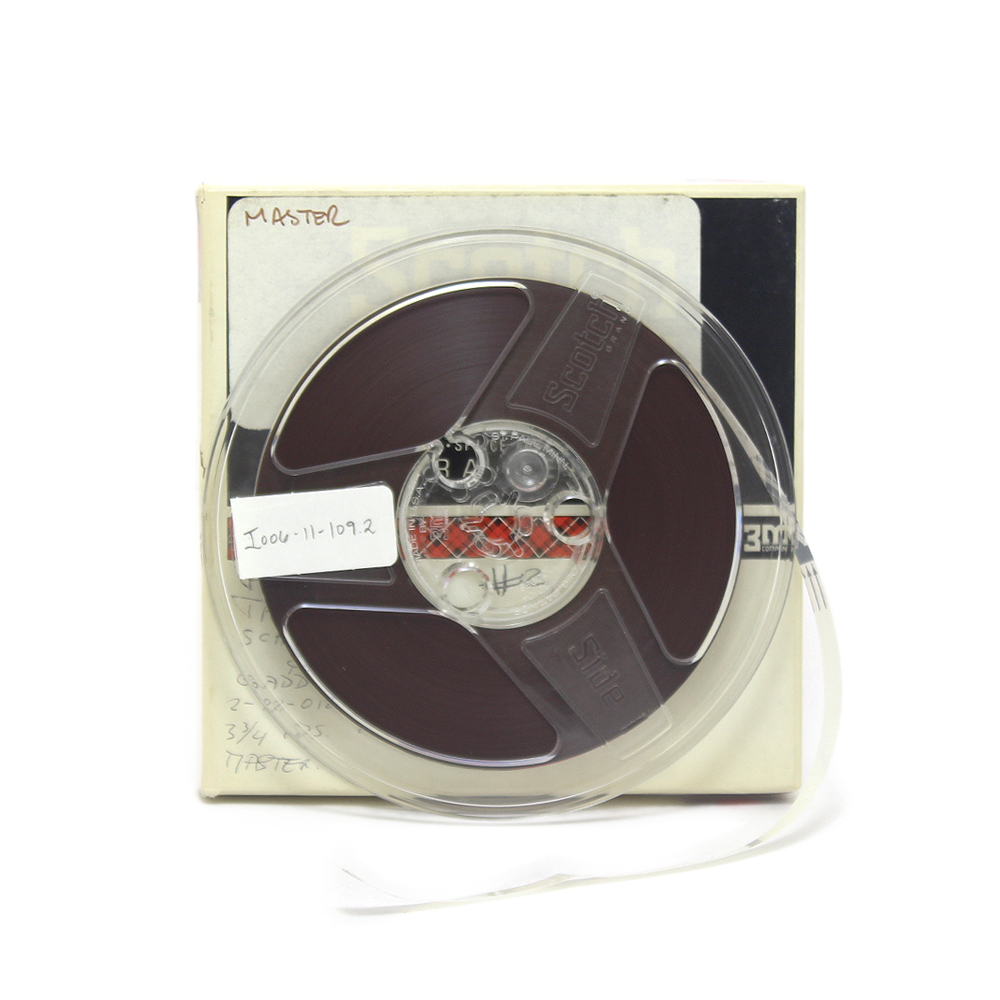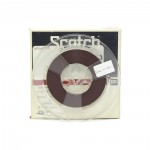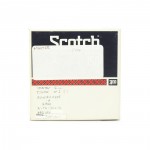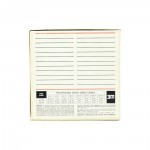Richard Sommer (Introducer)
00:00:00.00
I'd like to introduce you to two poets who are Vancouver friends of mine. Their poetry is quite different, as you'll discover. But from my own point of view, they...I owe both of them a debt that is similar in both cases though neither probably knows it. They've made me, in their own ways, rethink my own feelings about what ought to constitute poetry and poems. And in the case of Maxine Gadd, this thinking went into a review which was then sent to the Firepoint which then folded. So you may never see that. And in the case of Andy Schroeder, found its way into a long tape harangue between the two of us on the subject of form in poetry. Which I think is now in the Sir George Williams Library, where any of you can endure it if you wish to. At any rate, the first of these poets to read will be Maxine Gadd. There will be a fifteen minute break, and then Andreas Schroeder will read. Maxine.
Annotation
00:01:32.06
Applause. Some inaudible muttered comments off-mike during setup.
Richard Sommer
00:02:01.18
You're plugged in.
Maxine Gadd
00:02:03.41
Oh boy. Can you hear me? I don't know how much projection to do. I don't know how much to talk about the poetry. My connection is very loose to the mainstream I guess, because, I don't know, I'm just not socially related to what's going on maybe in the poetry reading. I guess my identifications with words are somewhat with a West Coast hippie trip. And between the country and the city, the first feeling being, you know, the desire for purity, you know when you're seventeen or eighteen years old and you've figured the country life is it. And later coming to realize the necessity of the communal life and the city. So I think that's a task I'm going to try to set myself right here. I...this...I'm going to read first of all the second "well" poem, which I did, experienced in the country, living in the country. I remember the first "well" poem, I don't remember where it's gone, because it didn't get published. I disregarded its importance, you know. I tended to take the judgment of editors, and you know, people that set themselves up as authorities, and that's why I'm here, you know. I've kept close enough to them, I guess. I remember the first one went something like, "Wanting pure water I went to the well/too wonderful"...and there was something about the oracle as the bucket clacked. This is the “Second Well Poem”.
Annotation
00:03:57.01
Reads "Second Well Poem".
Maxine Gadd
00:04:41.45
Which is about where I feel right now. But that's about where my connection to poetry is right now. I wonder if that...I wonder if that one's around. I don't think it is. I guess I'll just take it as it comes. There's some scheme in this. I guess, I got published by a cat by bill bissett you might have heard, who did the thing, did the guru thing, the super-energy thing of getting a lot of work done, and getting a lot of people's work out, and a lot of his work out, a lot of it was real shit but he got it out, you know, and some of it worked and some of it didn't, but there was so much of it, you know...I'd like to have had that confidence, you know, I guess almost, most people write poetry, they've got it all in their trunk, you know, they don't get it out. But I guess that's what it takes. This is from one of his first, really cheap magazines. He put, he...it's typed, you know. Pretty good typing. His typing got worse, I get very angry, he makes lots of mistakes. But he did a lot of drawings and things, if anybody wants to look at it, you know. I mean, he did it minimum, you know, he was living really poor. And a lot of people still read his stuff, so, I mean, to me he was a folk poet in that sense, a lot of people still read his stuff because he got the stuff out cheap, you know. "Trip."
Annotation
00:06:05.01
Reads "Trip"
Maxine Gadd
00:07:47.85
I'm going to go over there. This one is to a poet who is in the, is in another world, okay? He looks like a silver lizard, and he's very beautiful, and he knows all about the Greek trip, and Eleusis, which is one's talking about in the first poem, okay, the oracles from under the ground, that belief you must start out with. It's called...and it's admiration, as well as a bit of terror.
Annotation
00:08:22.46
Reads first line "Robin has the horse in hand...”
Maxine Gadd
00:10:19.64
Leary, I should have mentioned, was Timothy Leary. Oh, I should have explained that before, yeah. Oh yeah, this is where I met...now I don't like it okay? And it's probably not a good poem. But that's, that's...you know, that's...the kind of art form I'd like to have seen was a collective art form, was what I yearned and hoped for. Poetry is what people write in rooms alone, and I don't like...I don't, you know, that's what I was stuck with. And I worked for a while with a group in Vancouver called, named, we called it "Intermedia." And I had the experience of working with a group, at one point there were five of us poets, you know, or what we called poets. And we'd go around to various places, we went to Edmonton one time, and we tried things, we tried chanting and wailing, like, was it...who was that crazy old lady. Sitwell, Edith Sitwell, remember her? And if you ever heard the sort of sing, the song, sing sing she used to do, you know, we tried that. And it really worked, you know, but you'd go around and you'd say, "Do you dig the poems" and they'd say, "I can't hear them, but we really like your voice." You know. {Laughter] So, you know, left that, you got an ache in the gut or something.
Annotation
00:11:37.26
Reads "Ratio"
Maxine Gadd
00:12:48.44
I don't like it. I don't want to be there. Here's one from last year. I got into printing stuff myself, you know, and I do that--I wish, oh, you can't see it, can you? It was mimeograph, it was real cheap, you know? And you could take images, you could take newspaper articles, you could take scraps of anything you saw that you dug, you know, put 'em together, and to me that was a, that was a form of concrete poetry. Can't, of course, I don't know, you couldn't really say that one or any number of them. This one is half-said, okay. Behind it I put a map, I found a map of B.C. and Minster Island was a map, was an Island I found once when I was working on a ship as a mess girl, on a freighter.
Annotation
00:13:46.71
Reads first line "Heading up to Minster Island..."
Maxine Gadd
00:15:33.13
And where that ended up was just over the name Bella Coola, which is sort of where they do can fish. There's no escape, though, you know? And...so then I want to read about Kitsilano, where most of...I happened, you know, I grew up. Kitsilano's a sort of slum district of Vancouver. And it's disintegrating, and you probably all experienced this, you know, being city people, you know, they're bulldozing the places, there's no more cheap places to live, and so your friends, you know, you can't live there anymore, your friends can't live there anymore, so whatever you had, which was sometimes very heavy, you know, community's really beautiful, you know? I used to go over and play music with my friends. We had to move out, you know, because the city's being destroyed, and only the people who are well-to-do, who have some sort of stake in the city, you know, who are supporting the structure can stay. And this poem is about somebody who I met one day on the street, you know, and her story, she's sort of sick, just on the street, everything's falling to pieces.
Annotation
00:16:55.13
Reads “bee-people on 4th avenue”.
Maxine Gadd
00:18:32.65
Who's singing out there? But here, on the next street, you know, I ran into a friend of mine. Her name's Martina. And, you know, we're about the same age, and we've been through a lot of things, and, we've been through some bad things, you know, lots of rejections and refusal, no, there's no food now, you can't have any, go away, you know, fighting over somebody or other.
Annotation
00:18:58.04
Reads “4th ave.”
Maxine Gadd
00:20:49.45
Us old ladies. Okay, but that's not entirely true. I got involved into all that magic stuff, you know, the Sufis, and into politics, and like this summer I hope I'm going to start some sort of woman's centre, back where I live, you know.
Annotation
00:21:09.94
END OF RECORDING




